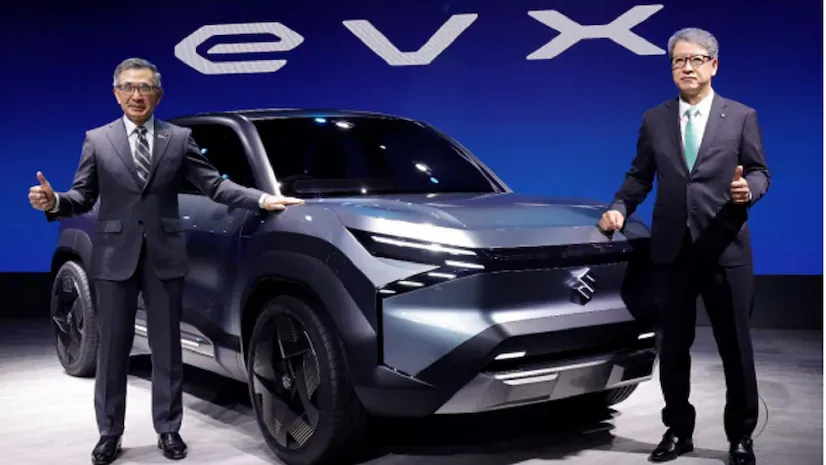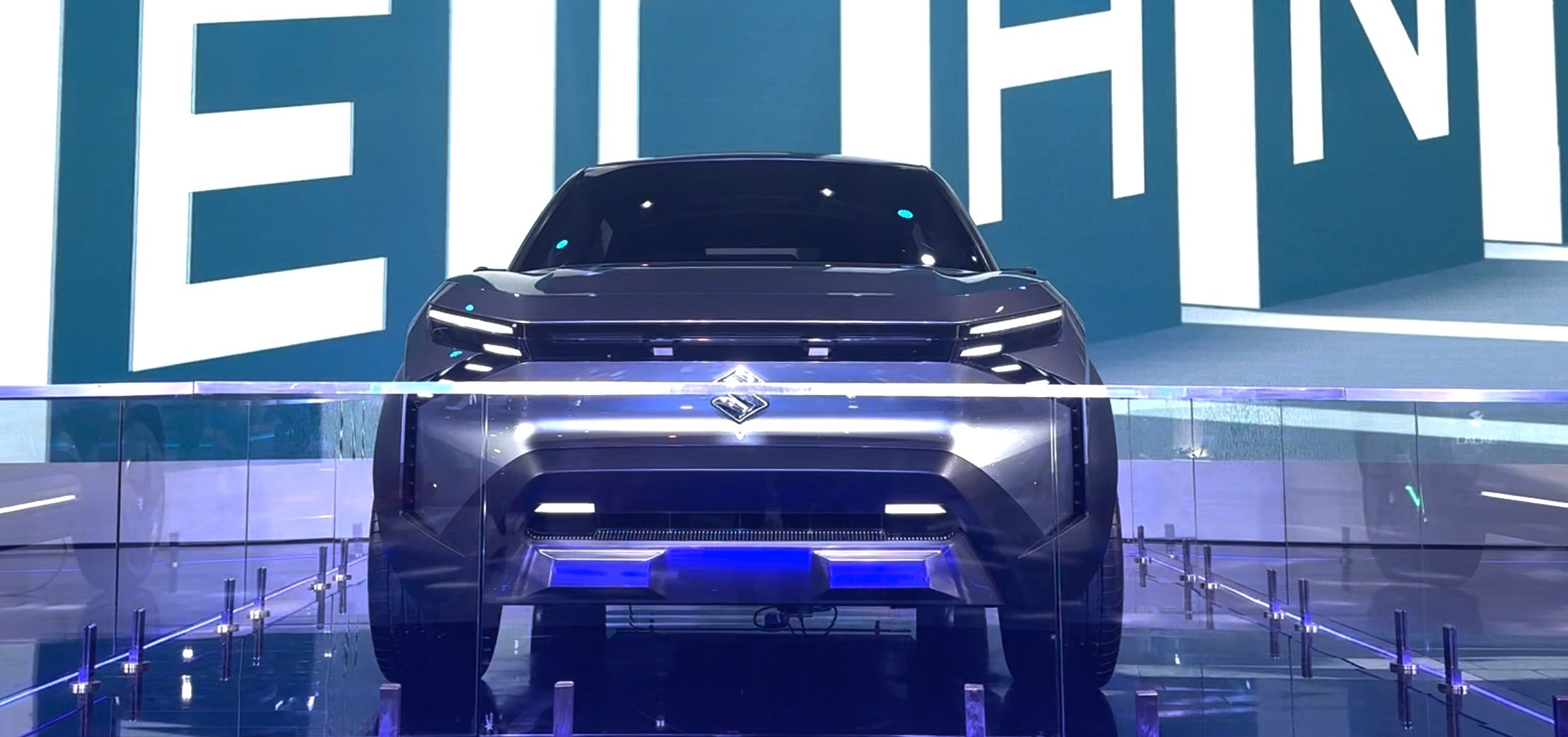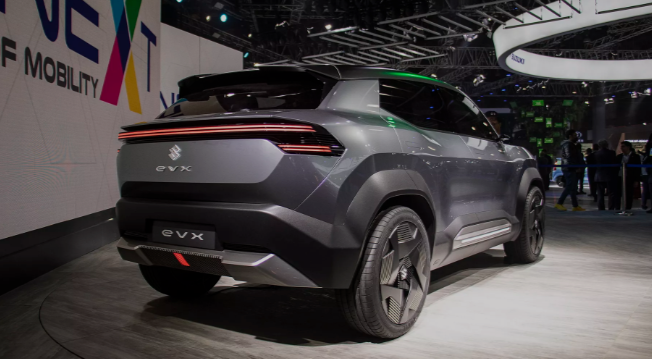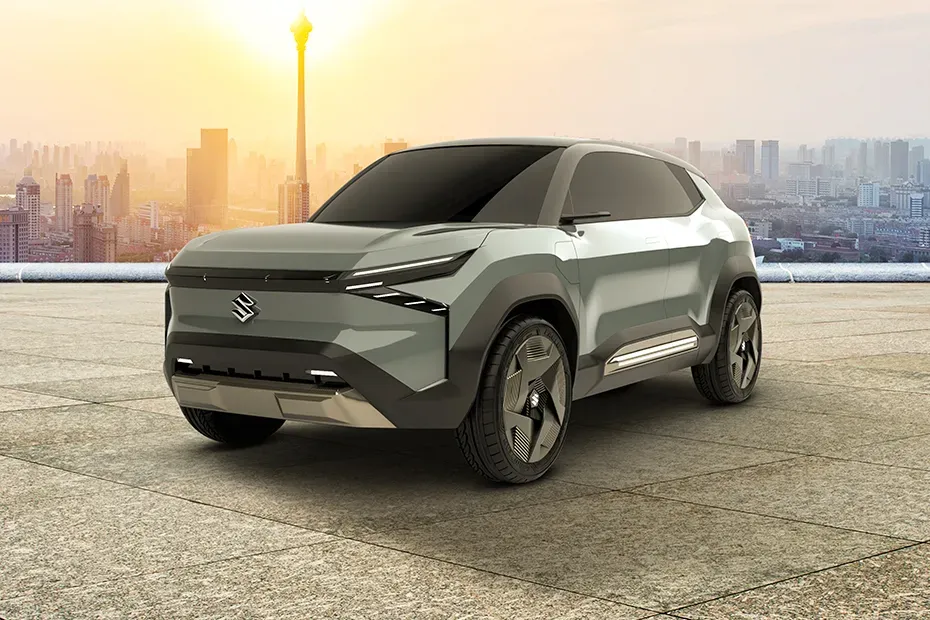India’s electric vehicle (EV) market is set to witness a major shift with the much-anticipated launch of Maruti Suzuki’s first electric SUV, the Concept eVX, slated for January 2025. As the nation gears up for this transformation, Maruti Suzuki is making strategic moves to ensure a smooth transition for its customers. The automaker plans to set up an extensive EV charging network of around 25,000 charging stations, addressing one of the most significant challenges in the country’s EV adoption journey—charging infrastructure.

Expanding Charging Infrastructure: A Key Strategy
One of the main hurdles slowing down the widespread adoption of EVs in India is the lack of reliable charging infrastructure. To tackle this, Maruti Suzuki is leveraging its 5,100 service centers across 2,300 cities, a vast network that gives it a unique advantage. The company is also in talks with oil marketing companies (OMCs) like Indian Oil, Bharat Petroleum, and Hindustan Petroleum to reserve space at their fuel stations for EV charging bays. These OMCs operate over 81,000 retail outlets across India, making this a massive opportunity to scale up charging points.
In fact, Maruti has already started surveying its dealer workshops to integrate charging stations. Each service center is expected to have at least one dedicated EV bay with two charging points, ensuring that customers can charge their vehicles conveniently. The automaker has also begun training service mechanics in Bengaluru to prepare them for EV maintenance, ensuring that the required technical support will be in place once the vehicles hit the market.
The Launch of Maruti Suzuki eVX: A Game Changer
The eVX SUV, priced between ₹20-25 lakh, is expected to cater to the growing demand for affordable yet premium electric cars. With plans to sell around 3,000 units in the first three months of its release, the eVX will be manufactured at Maruti’s Gujarat plant and sold through its premium Nexa outlets. This midsize electric SUV is part of Maruti’s larger vision, as the company plans to roll out six new EV models over the next six to seven years.

Addressing EV Ownership Concerns
Maruti Suzuki is well aware that range anxiety and concerns about EV maintenance are common among potential buyers. To ease these concerns, Hisashi Takeuchi, Managing Director of Maruti Suzuki, has emphasized that the company is working on a range of solutions aimed at enhancing customer confidence. By tapping into its extensive service network and establishing a robust charging ecosystem, Maruti aims to provide customers with reliable after-sale support and seamless EV ownership.
This strategy mirrors that of other industry leaders like Tata Motors, which has already made significant progress in establishing charging stations across India. For instance, Tata Motors has installed over 5,600 public charging points, while Tata Power has set up more than 100,000 home charging stations. Maruti’s approach to scaling its infrastructure before launching its first EV is a clear indication of the company’s commitment to solving the challenges faced by EV buyers.
The Bigger Picture: Sustainable Mobility
As India pushes forward with its sustainable mobility goals, the success of Maruti Suzuki’s eVX and its supporting infrastructure could be a significant step toward achieving widespread EV adoption. The company’s investment in 25,000 EV charging stations is not just about selling cars—it’s about creating an ecosystem that encourages long-term EV growth in India. With a focus on convenience, reliability, and customer confidence, Maruti Suzuki is positioning itself as a key player in the evolving Indian EV market.

With the eVX SUV leading the charge, Maruti Suzuki’s entry into the EV segment is expected to accelerate India’s transition to cleaner, greener vehicles, all while providing a seamless experience for its customers.


